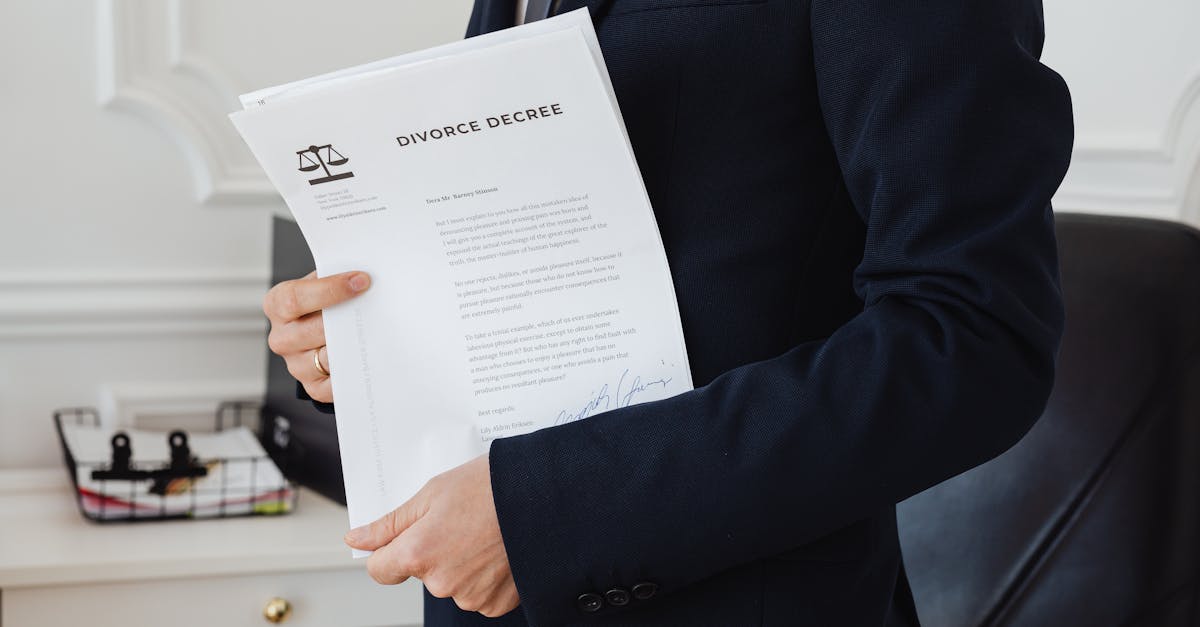
Communication Strategies
Effective communication strategies are vital in addressing the impact of infidelity and trust issues. Open discussion allows both partners to express their feelings and concerns without fear of judgment. This dialogue nurtures understanding and empathy while providing a safe space for discussing painful emotions. Listening actively and respectfully fosters connection, making it easier for both individuals to navigate the complex feelings surrounding trust and betrayal.
Establishing regular check-ins can enhance communication further. These meetings create opportunities for partners to share updates on their emotional states and any lingering issues. Consistency in communication helps reinforce trust and accountability. Both partners should be encouraged to voice their thoughts and feelings, which may lead to a deeper understanding of the emotional landscape shaped by infidelity and trust issues.
Open Dialogue as a Healing Tool
Open dialogue serves as an essential tool for couples navigating the tumultuous waters of infidelity and trust issues. Acknowledging feelings and concerns openly fosters an environment where both partners can express their thoughts without fear of judgment. This kind of honest communication can help to unveil underlying issues and misunderstandings, allowing for a clearer path toward healing. By discussing emotions and experiences related to infidelity, couples can begin to rebuild their connection and establish a renewed sense of trust.
Incorporating regular check-ins can further enhance open dialogue, enabling both partners to address ongoing feelings regarding their relationship. These conversations promote accountability and transparency, essential components for overcoming trust issues. When partners share their vulnerabilities, it deepens their understanding of each other’s perspectives and creates a foundation for mutual respect. Each dialogue not only assists in coping with the aftermath of infidelity but also strengthens the relationship, fostering a climate where trust can gradually be restored.
The Importance of Transparency
Transparency plays a critical role in rebuilding trust after infidelity. Being open about feelings, concerns, and intentions fosters a safer environment for honest communication. When both partners share their thoughts and vulnerabilities, it helps to dismantle the walls that infidelity has erected. This commitment to openness paves the way for healing by allowing both individuals to address any lingering doubts or fears.
Infidelity and trust issues create a complex emotional landscape that requires careful navigation. Clear and honest conversations can help clarify misunderstandings and reinforce the commitment to restore the relationship. Transparency acts as a foundation for establishing new trust, enabling partners to collaborate on rebuilding their connection. This willingness to communicate openly encourages accountability and lays the groundwork for a healthier, more resilient partnership.
Being Open to Prevent Future Issues
Establishing an open and honest environment can significantly reduce the likelihood of infidelity and trust issues arising in a relationship. When partners feel safe to express their feelings and concerns without fear of judgment or retribution, they are more likely to address potential problems before they escalate. Engaging in regular heartfelt conversations about boundaries, expectations, and vulnerabilities can fortify the relationship’s foundation. This proactive approach helps reinforce the sense of security both partners seek.
Being transparent about past experiences, including any history of infidelity, can serve as a powerful preventative measure. It allows partners to understand each other's emotional triggers and insecurities. Sharing these details invites mutual respect and fosters empathy, creating a deeper bond. By discussing how both partners can actively support each other, the chances of misunderstandings leading to infidelity and trust issues diminish.
Seeking Professional Guidance
Seeking professional guidance can be a pivotal step for couples grappling with infidelity and trust issues. Therapy offers a structured environment where both partners can express their feelings openly. This safe space allows individuals to explore the emotional fallout from betrayal and understand the underlying issues that may have contributed to the infidelity. A trained therapist can facilitate these discussions, ensuring both parties feel heard and validated.
Professional support can also provide valuable tools for communication and rebuilding trust. Therapists often introduce strategies that encourage vulnerability and honesty, fostering a deeper connection between partners. This process not only addresses the immediate consequences of infidelity but also helps establish a foundation for healthier interactions in the future. Engaging in therapy can lead to greater awareness of personal triggers and emotional responses, promoting a stronger relationship overall.
The Role of Therapy in Healing
Therapy can play a crucial role in addressing the complexities surrounding infidelity and trust issues in a relationship. Professional guidance provides a structured environment for both partners to express their feelings and thoughts openly. During sessions, therapists can help couples identify the root causes of their problems and work towards rebuilding trust. The process often involves exploring emotional triggers and past experiences that may contribute to ongoing challenges.
Additionally, therapy offers valuable tools for effective communication. Couples learn to navigate difficult conversations with greater understanding and empathy. This skillset not only aids in healing after infidelity but also fosters a healthier dynamic moving forward. Engaging with a therapist allows pairs to set goals together and track their progress, reinforcing their commitment to overcoming the difficulties that infidelity and trust issues create.
FAQS
Does infidelity always lead to trust issues in a relationship?
While infidelity often results in trust issues, not every instance guarantees the same outcome. The couple's dynamics, communication, and willingness to work through the situation play significant roles in determining the extent of trust issues.
How can open dialogue help in rebuilding trust after infidelity?
Open dialogue allows both partners to express their feelings, concerns, and expectations. This communication fosters understanding, helps to address underlying issues, and can pave the way for healing and rebuilding trust.
What are some effective communication strategies to address trust issues?
Effective strategies include active listening, expressing feelings without blame, using "I" statements, and establishing a safe space for discussion. These techniques encourage openness and reduce defensiveness.
How important is transparency in preventing future trust issues?
Transparency is crucial as it builds a foundation of honesty and accountability. Being open about feelings, actions, and intentions can help prevent misunderstandings and rebuild trust over time.
When should a couple consider seeking professional guidance after infidelity?
Couples should consider therapy when they struggle to communicate effectively, find it challenging to rebuild trust, or feel overwhelmed by emotions. A professional can provide tools and strategies to navigate these complex feelings and improve the relationship.
